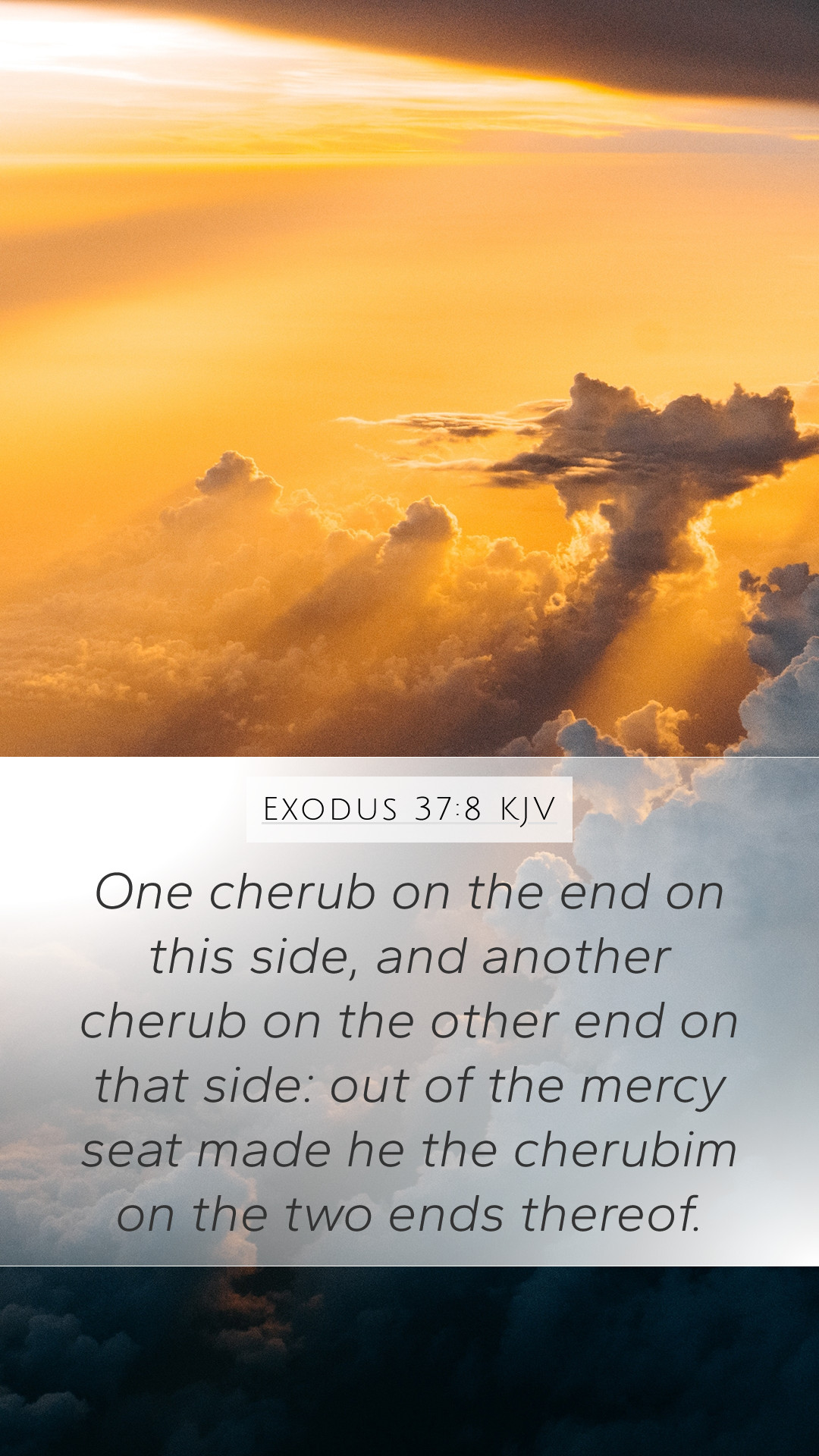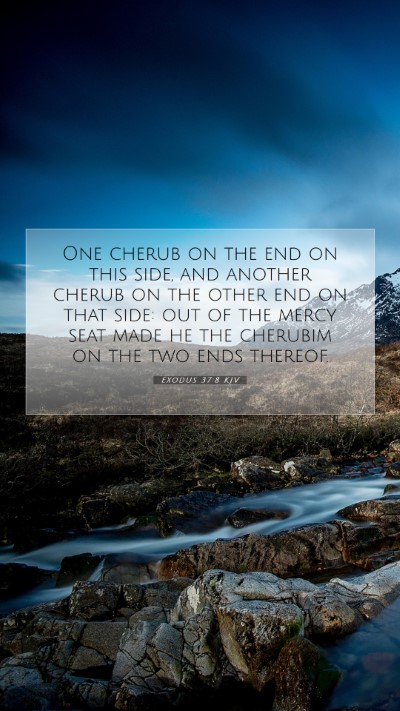Understanding Exodus 37:8
Exodus 37:8 states, “One cherub on one end and the other cherub on the other end. The two cherubim spread their wings above and overshadow the mercy seat with their wings, facing one another; the faces of the cherubim were toward the mercy seat.” This verse describes a significant aspect of the Ark of the Covenant, particularly the placement and symbolism of the cherubim that adorned its cover.
Bible Verse Meanings
The cherubim depicted in this verse serve as guardians of the divine presence, emphasizing the holiness of God. Matthew Henry comments on this imagery by stating that the cherubim represent the power and majesty of God, and their wings overlooking the mercy seat imply a protective and reverential posture before the divine throne. This invites believers to recognize the sacred nature of God's presence among His people.
Bible Verse Interpretations
Albert Barnes elaborates on the interpretation of the cherubim by asserting that they not only signify a guardian role but also symbolize the connection between heaven and earth. Their position facing each other with their wings spread outward reflects the idea of unity among celestial beings in the worship of God. This indicates that the design of the Ark and its adornments is intentional, meant to foster a sense of divine communion.
Bible Verse Understanding
According to Adam Clarke, the cherubim should be seen as powerful heavenly beings, possibly representing the nature of Christ and his role in intercession. The mercy seat, located between these cherubim, represents God's willingness to forgive and commune with His people. Clarke emphasizes the importance of the mercy seat, describing it as a place where God's justice and mercy meet, allowing believers access to divine grace.
Bible Verse Explanations
This verse serves to remind the faithful of the anticipation of God’s presence among them, as highlighted by the detailed artistic description. The significance of the mercy seat cannot be overlooked; it signifies a place where God communicates with His people, as also suggested in Hebrews 9:5, which identifies the mercy seat as a central element of atonement.
Key Themes and Symbolism
- Divine Presence: The cherubim symbolize the immediate presence of God.
- Protection and Reverence: Their wings serve as a covering, which denotes respect and protection.
- Intercession and Grace: The relationship between the cherubim and the mercy seat reflects God's readiness to forgive and grace to His people.
Related Bible Cross References
- Genesis 3:24: The placement of cherubim to guard the way to the tree of life.
- 1 Samuel 4:4: The ark of the covenant and its significance in battles.
- Hebrews 9:5: The description of the mercy seat and the cherubim in the Holy Place.
Application of Biblical Teachings
For modern believers, Exodus 37:8 serves as a reminder of the sacredness of God's presence. Understanding the imagery of the cherubim and the mercy seat offers insights into worship and relational dynamics with God. Just as the Israelite community approached the Ark with reverence, today’s individuals are called to approach God with the same awe and reverence, knowing that His mercy covers their sins.
In-depth Bible Verse Analysis
This scripture invites an examination not only of historical context but also encourages practical application of its teachings. In light of Exodus 37:8, believers can reflect on how to create reverent spaces in their own lives, recognizing that they too carry the mercy of God within them. This prompts questions such as: How should I honor God's presence in my daily life? and What does it mean to live under the mercy of God?
Conclusion on Bible Study Insights
Exodus 37:8 encapsulates essential truths about the nature of God, the role of His presence, and the grace offered to humanity. Through understanding this verse, individuals can engage in deeper biblical studies, challenge themselves with interpretations, and apply these insights practically. This scripture serves as a foundation for discussing broader themes in theology, worship, and divine interaction.


